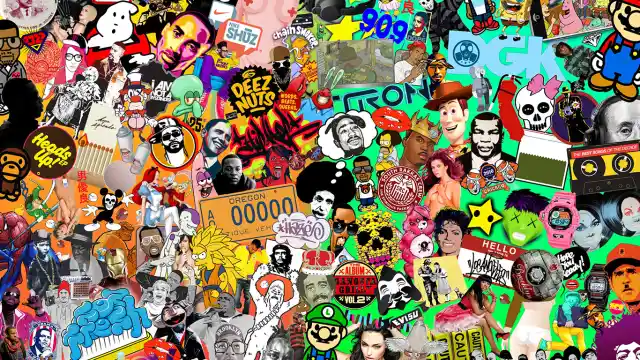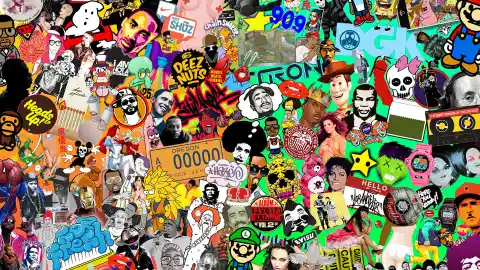

One of my desk drawers is in danger of exploding. I have this thing about tickets. For some reason, I have saved nearly every paper ticket I’ve ever received. Football games, train rides, movie nights, Drum Corps competitions, Rocky Horror showings, raffles I didn’t win (“Keep This Coupon,” indeed), and of course, a heavy dose of concert tickets and press passes. All preserved like little paper mummies, and in grave danger of disintegrating. But my collection is not the only thing in trouble.
As venue usher and graphic designer Matthew Lew covered magnificently on Medium, Ticketmaster, the literal master of tickets, grants access in a way that is already antiquated from a design standpoint. He responded by creating a prototype for a brand new kind of paper concert ticket. Lew’s suggested upgrade is conveniently shaped like a business card, dotted in Lichtenstein-esque background art for keepsake purposes (swoon), and easy on the eyes when it comes to finding information quickly. Unfortunately, it’s probably not going to happen.
Though Lew’s proposal was met with high praise from musicians, concertgoers, and venue workers, not to mention leading magazines Wired and Fast Company, some sound concerns were raised along the way. Several readers pointed out that for Ticketmaster to do a massive overhaul of their system and replace all of their printing technology around the globe, just to accommodate a nicer ticket design, they would really need to be strapped for cash. As the world’s leading ticket distributor, lounging lazily at the top of an $18-billion-a-year industry, they’re not.
The reality is that Ticketmaster does not need to change a thing. No matter how much we would love to take home a prettier ticket, aesthetic preferences seldom lead to serious boycotts. We’re still going to go see our favorite band, no matter what kind of ticket they hand us at Will Call, and they know that. Do not pass go, do not collect $200; Ticketmaster is a monopoly in every sense of the word.
But if they do change something, you can already guess where it’s going. When it comes to air travel, for example, I have not used a paper boarding pass in a long time. I can now save almost any type of ticket to Passbook and wave my iPhone like a magic wand at the gate. Not only that, but the app saves all of your old tickets in a neat little virtual pile, so you can reminisce on past trips and events without conducting an archeological dig in your desk drawer.
I love when technology works well, but I have to admit that I’m still dragging my heels on this one. It’s to the extent that I’m actually annoyed at how convenient digital tickets are.
I have resisted the Kindle craze and continued to pile up books, I still hoard vinyl and CDs, and my stack of DVDs is giving the Leaning Tower of Pisa a run for its money. I have such an affinity for magazines that the guy who owns the magazine shop actually laughs at me, booming, “When ya’ going digital?” from behind his own counter. You know it’s bad when the guy who makes a living selling magazines makes fun of the fact that you still buy magazines.
Many of us want desperately to save physical media, but maybe we need to pick our battles. To me, there is nothing horribly cumbersome about turning paper to read a book, or putting a plastic circle in a slot to watch a movie. While moving to digital in these realms can certainly save a bit of space and money, the objects themselves are not unbearable to consume in their original form.
Paper concert tickets kind of are. They can be easily lost, damaged, stolen, or scalped. They are awkwardly sized for pockets and wallets, and the information presented is often unclear. When it comes down to it, the incredible ease of digital tickets may be enough to justify laying paper tickets to rest.